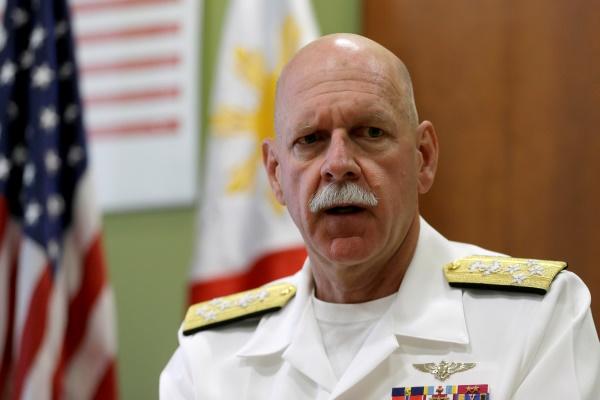SAN DIEGO -- The commander of the Navy's Pacific Fleet warned Thursday that more information was needed to determine a course of action following reports that China had deployed HQ-9 surface-to-air missiles to a disputed island in the South China Sea.
Those reports depicting missile launchers on the territorially disputed Woody Island, part of the Paracel island chain, were corroborated with satellite imagery depicting missile launchers.
"My response would be, 'OK, let's be thoughtful about this,' " Adm. Scott Swift said Thursday at the AFCEA West Conference in San Diego, adding that the move needed to be viewed in context with the island's history.
Swift's remarks came a day after Secretary of State John Kerry condemned the reported move as a sign of "increased militarization" and promised to have a "very serious" conversation with Chinese authorities about the alleged missile deployment. Chinese President Xi Jingping promised not to militarize the South China Sea in a Rose Garden meeting with President Barack Obama, Kerry noted.
In fact, Swift said, this is at least the third time that Woody Island has housed HQ-9 missiles; twice previously, China has sent missiles to the island for exercises.
"So that context is important. This isn't exactly something that's new," he said.
During one of those exercises, Swift said, the Chinese actually employed the weapons system, using an HQ-9 missile to shoot down a drone.
"So there's an end-to-end test that the system is operational and it works," he said.
But unlike previous missile deployments to Woody Island, this one had no association with an exercise, Swift said.
"So the real question is, 'What's the intent? How long is it going to be there? Is this a permanent forward deployment of this weapons system or not?' " he said. "So it's a series of questions that we need to generate and ask ourselves."
It's not clear yet how the U.S. plans to respond to the latest apparent power move in the hotly contested South China Sea.
Kerry promised Wednesday he would have more to say publicly about the apparent missile deployment in coming days.
"My hope is China will realize it's important to resolve the jurisdictional issues in the South China Sea not through unilateral action, not through force, not through militarization," Kerry said, "but through diplomacy and by working with other countries and claimants to try to resolve these differences."
-- Hope Hodge Seck can be reached at hope.seck@monster.com. Follow her on Twitter at @HopeSeck.




























